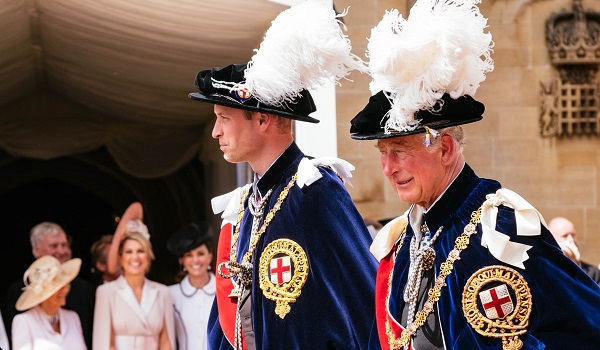Judicial review: 'Private' messages can be used in disciplinary proceedings
Ten police officers have lost a court battle to keep alleged “inappropriate” Whatsapp messages a secret after misconduct proceedings were raised against them.
The group took their fight to the Court of Session in Edinburgh where they argued that Police Scotland using the messages would be breaching their human rights.
Lawyers for the officers said that their right to privacy would be hindered and that there was no legal basis for the force to use the ‘private’ messages.
But Police Scotland argued that they were entitled to use the messages in disciplinary proceedings and that the comments made could bring the force into disrepute.
The messages, which have not been made public, were discovered on a mobile phone during an investigation into alleged sexual offences in 2016.
None of the ten officers were a suspect however a fellow officer came under suspicion and his phone was seized and searched. The officer was later cleared.
The alleged improper remarks, made during group chats, were discovered by a detective constable who handed them over to the Professional Standards Department of Police Scotland.
The officers launched a bid to have the messages kept secret and sought a judicial review meaning the courts would make the decision as opposed to a police misconduct panel.
In a written opinion, published on Friday, Lord Bannatyne said that there was a legal basis for the messages to be used for disciplinary proceedings.
He also found that, due to the nature of the messages and the standards an officer is expected to keep both on and off duty, that the group members did not have the same right to privacy as other members of the public.
Lord Bannatyne said: “The principle purpose of the police is the protection of the public. Officers behaving in the way set out in these messages may be held to have contravened the Standards.
“An officer who fails to meet the Standards, for the reasons put forward in the present case on the basis of the messages, can reasonably be inferred to be likely to be someone who would lose the confidence of the public and cause a decline in the general public confidence in the police.
“It is essential for the purpose of successful policing that the police maintain the confidence of the public.
“If the public loses confidence in the police in this way then public safety would be put at risk as the police cannot operate efficiently without such public confidence.
“This fits in with an intervention being necessary for “the prevention of disorder or crime”. “The police, if the public loses confidence in them, are likely to be less able to prevent disorder or crime.”
He continued: “I observe that certain aspects of the behaviour displayed in the messages shows a mind-set where the public’s right to be treated fairly is called into question for example depending on their race, religion or sexuality.
“Once more an officer who holds these types of views is less likely to have the confidence of the public and the public safety would be put at risk by having an officer of that type for the reasons I have set out.
“I consider that the argument comes to this: given the standards and the regulatory framework to which a police officer is subject then he or she is in a different category from an ordinary member of the public and that because of their position as police officers their reasonable expectation of privacy is different from an ordinary member of the general 54 public.”
David Kennedy, deputy general secretary for the Scottish Police Federation, said: “We are disappointed that we have lost this case and are somewhat surprised at the outcome.
“We are currently working with our legal team to determine if we will be appealing the decision.”






